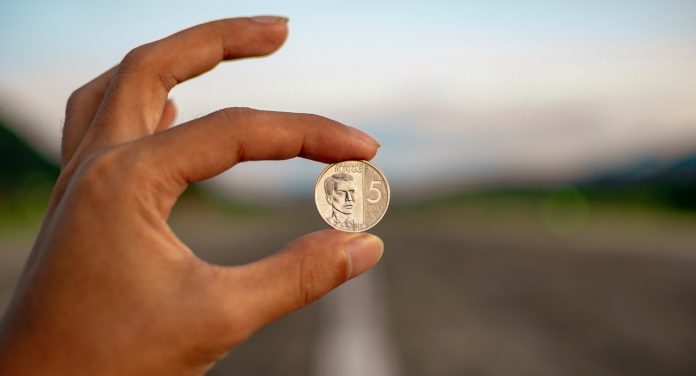The increased possibility of a no deal Brexit pulled the pound from session highs on Wednesday. The pound euro exchange rate rallied to a peak of €1.1272 during the session only to suddenly fall later on. The pair closed just marginally higher at €1.1231.
| What do these figures mean? |
|---|
When measuring the value of a pair of currencies, one set equals 1 unit and the other shows the current equivalent. As the market moves, the amount will vary from minute to minute. For example, it could be written: 1 GBP = 1.13990 EUR Here, £1 is equivalent to approximately €1.14. This specifically measures the pound’s worth against the euro. If the euro amount increases in this pairing, it’s positive for the pound. Or, if you were looking at it the other way around: 1 EUR = 0.87271 GBP In this example, €1 is equivalent to approximately £0.87. This measures the euro’s worth versus the British pound. If the sterling number gets larger, it’s good news for the euro. |
The pound experienced volatility in the previous session as Brexit returned to the forefront of investors’ minds. Firstly, Boris Johnson launched his leadership bid. The polls point to Boris Johnson winning the Tory leadership contest. Given his desire for Brexit with or without a deal pound trader had been growing increasingly nervous of a no deal Brexit. Instead, Boris Johnson played it safe over Brexit, warning of the dangers of a no deal Brexit. He toned down his enthusiasm for leaving the bloc without a deal and pledged support to the UK financial services. His speech was well received by pound investors, who breathed a sigh of relief. The pound moved higher.
The move higher in the pound was short lived on Wednesday and more Brexit headline quickly pulled it southwards. The UK government defeated an attempt by Labour leader Jeremy Corbyn to block a no deal Brexit. This move by Parliament leaves the door wide open for a Brexiteer prime minister, a major boost to Boris Johnson. As the probability of a no deal Brexit increased, the pound dropped.
| Why is a “soft” Brexit better for sterling than a “hard” Brexit? |
|---|
| A soft Brexit implies anything less than UK’s complete withdrawal from the EU. For example, it could mean the UK retains some form of membership to the European Union single market in exchange for some free movement of people, i.e. immigration. This is considered more positive than a “hard” Brexit, which is a full severance from the EU. The reason “soft” is considered more pound-friendly is because the economic impact would be lower. If there is less negative impact on the economy, foreign investors will continue to invest in the UK. As investment requires local currency, this increased demand for the pound then boosts its value. |
Today there is no high impacting UK economic data. Pound investors will remain fixed on developments in Westminster as the first round of voting takes place. Any candidate who fails to gain 17 votes will be eliminated.
Will Industrial Production Data Weigh On Euro?
The euro was broadly out of favour in the previous session as investors digested cautious comments from European Central Bank President Mario Draghi. In his speech in Frankfurt, Draghi highlighted central Europe’s vulnerabilities to the ongoing trade war. Owing to its high reliance on foreign trade and focus on single industries such as car manufacturing central Europe stands to be hit hard by a prolonged trade war. As a result, the euro weakened.
Eurozone industrial production figures will be under the spotlight on Thursday. Analysts are expecting industrial production to have fallen again in April, further evidence of the trade war impacting on the eurozone economy. Weak data could prompt investors to sell out of the euro.
| Why does poor economic data drag on a country’s currency? |
|---|
| Slowing economic indicators point to a slowing economy. Weak economies have weaker currencies because institutions look to reduce investments in countries where growth prospects are low and then transfer money to countries with higher growth prospects. These institutions sell out of their investment and the local currency, thus increasing supply of the currency and pushing down the money’s worth. So, when a country or region has poor economic news, the value of the currency tends to fall. |
This publication is provided for general information purposes only and is not intended to cover every aspect of the topics with which it deals. It is not intended to amount to advice on which you should rely. You must obtain professional or specialist advice before taking, or refraining from, any action on the basis of the content in this publication. The information in this publication does not constitute legal, tax or other professional advice from TransferWise Inc., Currency Live or its affiliates. Prior results do not guarantee a similar outcome. We make no representations, warranties or guarantees, whether express or implied, that the content in the publication is accurate, complete or up to date. Consult our risk warning page for more details.
This article was initially published on TransferWise.com from the same author. The content at Currency Live is the sole opinion of the authors and in no way reflects the views of TransferWise Inc.





